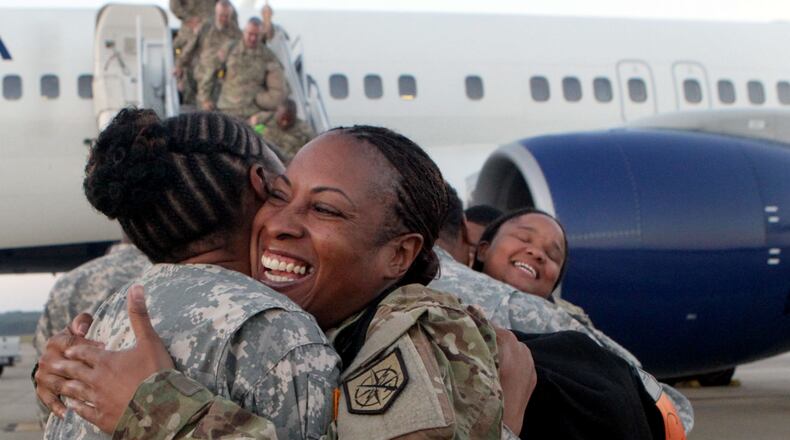Paul P. Marthers is interim vice president of campus life and vice provost for enrollment management at Emory University. In this piece, he addresses a group that needs more attention from higher education: military veterans.
By Paul P. Marthers
Emory University, along with many of our peers, is expanding efforts to let military veterans know of our strong interest in having them join our university community, and of the resources available to them as they consider their next career path.
While many 18-year-olds head off to college every fall, others chose to enter military service. After nearly two decades of war, our nation has produced an entire generation of young men and women who are returning home to resume civilian lives. But according to the U.S. Department of Veterans Affairs, a recent study showed that less than one percent of the one million current GI Bill recipients are enrolled in top-tier universities like Emory. And a recent report from Ithaka S+R shows that only 10% of veterans using their education benefits attend high-graduation rate institutions, compared to 21% of the general student population.
Veterans, we’re working to help pave the way forward. We know you arrive on our campuses having taken a nontraditional path. You’ve spent four years of your life or more serving your country, getting valuable technical expertise, leadership training, learning how to work in diverse teams, learning how to become not only leaders but followers, and gaining the discipline and the desire to forge new career paths.
Now it’s up to us, leaders in higher education to make sure you know how much the experience and expertise you’ve attained during military service can contribute to our academic programs and enrich the lives of our undergraduate and graduate communities.
Following the passage of the post-9/11 GI Bill, there were a handful of top-tier universities, such as Columbia, Duke, and Stanford universities, that stepped up their support of post-9/11 veterans in their transition from military to university life. When I served the State University of New York System as associate vice chancellor for enrollment management and student success before joining Emory, I recognized the growing population and particular needs of these students and created a coordinator of veterans affairs position, appointing a woman with more than 25 years of experience in the United States Air Force.
Now, Emory and other universities — such as Posse Foundation Veterans Program partners Dartmouth College, Vassar College, and the University of Virginia — are picking up the mantle, working to recruit increasing numbers of veterans to our campuses and ensure that a higher education is accessible and affordable for them and that we have the services to support them through their student journey.
Openness to veterans is another way for Emory to serve its surrounding region. Georgia is home to the fifth-largest active duty military population in the nation, and more than 770,000 of our fellow citizens are veterans, and Atlanta is one of the fastest growing economies in the country, home to more the 150,000 businesses many of which are Fortune 500 and 1000 companies.
According to Iraq and Afghanistan Veterans of America, after WWII, the GI Bill proved that for every dollar spent on veteran education, seven were returned to the U.S. economy. Atlanta is also uniquely positioned to not only offer the highest quality education, but job opportunities and lucrative career paths.
Given the number of academic institutions in the Atlanta area, Emory and its neighboring colleges and universities are uniquely positioned to serve a pipeline for you, our military-affiliated graduates who choose to remain in our state to contribute to our economy and community as leaders in business, government and community service.
There are a number of local and national programs and recruiting events that universities, including Emory, have tapped to build long term public-private partnerships to meet the holistic needs of veterans, and to provide opportunities for veterans to tour campuses and to meet with faculty and admission advisers to explore how to navigate various education and career paths.
Emory will continue to work to strengthen existing programs and to work with other Atlanta-area institutions and organizations to expand these efforts. Beyond recruiting veterans to our institutions, we can play an important role in enticing them to remain in our communities following completion of their degrees.
To our veterans, I encourage you to seek out and explore the many available educational opportunities and resources and know you have a place at whatever institution you choose.
At the same time, I urge our academic colleagues and Atlanta-area college and organization partners to continue their important work in providing opportunities for veterans to assume new leadership roles here at home.
About the Author
Keep Reading
The Latest
Featured




